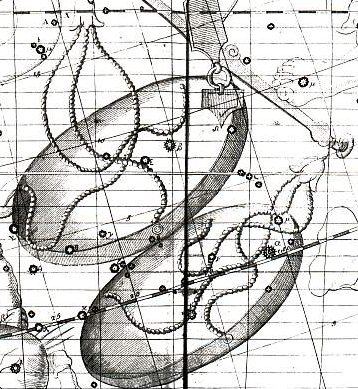Maybe there is a bead hidden beneath the
L string (in contrast to a bead possibly hidden beneath
the R string in the upper bowl).
The C string of the upper bowl could
maybe have 30 beads and the C string of the lower bowl
have 44 beads. And if we should count hidden beads I
guess we should consider to add also beads which may be
hidden behind the rims in front:
|
C string
inside the lower bowl: |
|
19 |
1 |
23 |
1 |
42 (+ 2) |
|
C string
inside the upper bowl: |
|
10 |
1 |
19 |
1 |
29 (+ 2) |
|
Sums of
beads inside the bowls: |
|
29 |
2 |
42 |
2 |
71 (+ 4) |
|
Differences: |
|
9 |
0 |
4 |
0 |
13 |
However, my instinct told me not to count
hidden beads.
We should add the beads on the
outside to those on the inside and then compare with
the northern bowl:
|
C string
of the southern bowl: |
C string
of the northern bowl: |
|
Outside the bowl: |
7 |
Outside the bowl: |
20 |
|
Inside the bowl: |
19 |
Inside the bowl: |
10 |
|
Sum: |
26 |
Sum: |
30 |
|
Inside the bowl: |
23 |
Inside the bowl: |
19 |
|
Sum visible beads |
49 |
Sum visible beads |
49 |
I regard 49 beads on both the
C strings as an argument for having counted
right, especially as 26 is the declination
of Antares.
